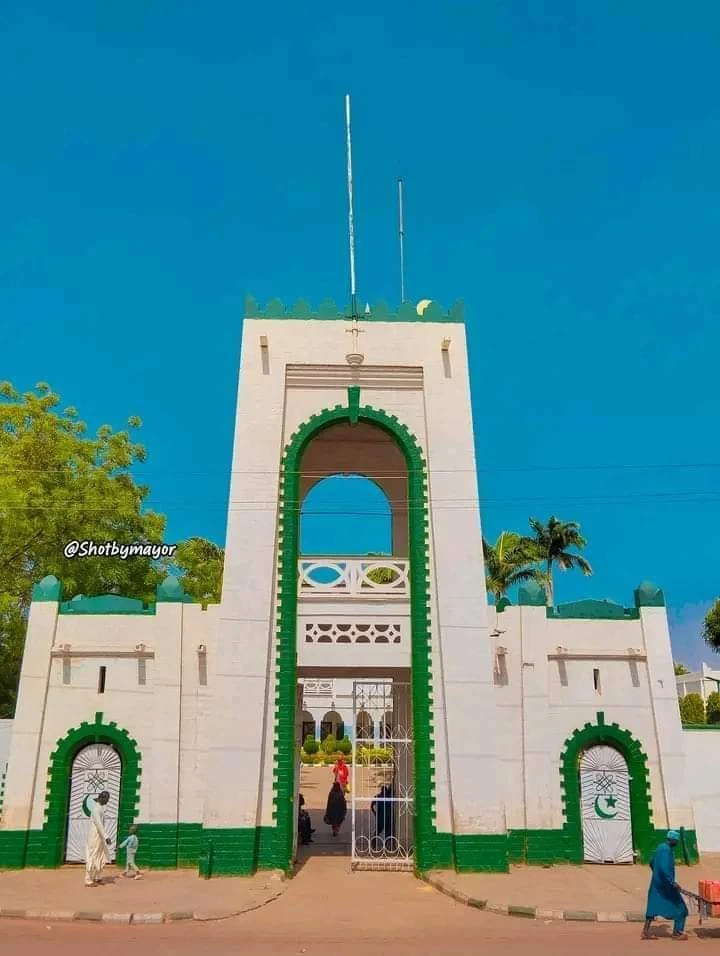The rich history and culture of Sokoto, Nigeria is worth taking note. Learn about the legendary Sokoto Caliphate, its heritage, and the vibrant lifestyle of its people, geography, climate and others.

The historical Sokoto Caliphate Is considered one of West Africa's most organized and largest states. This started from the legendary Uthman Dan Fodio's jihad, which had Sokoto as a camp to the British conquest. Present-day Sokoto might not have the glory, but it influences the Islamic world.
The great city of Sokoto has a plethora of heritage, Islamic scholarship, and vibrancy. Learn about this town of predominantly Muslim residents, its geography and climate, its culture and languages, its historical significance, and its demographics.
Summary
- Sokoto is renowned as the historical seat of the Sokoto Caliphate.
- The climate of Sokoto is characterized by wet and dry seasons.
- The city is known for its annual festivals, such as Eid-el-Fitr and Eid-el-Kabir.
- There are cultural events like dambe or traditional wrestling and the Durbar.
- The Sokoto Caliphate in pre-colonial times is regarded as Africa's largest state.
- The Sultan of Sokoto is the Commander of all the Muslim Faithful under the caliphate.
Geography and Climate of Sokoto
Sokoto is a state and city in the northwestern part of Nigeria. It is the seat of the Sokoto Caliphate. As a state within the savannah zone, Sokoto's free grassland is suitable for the cultivation of grain crops and animal husbandry.
If you plan to stay for a year, there are two major seasons in the state: the wet and dry seasons. The dry season mostly starts in October and lasts until April in some parts but may extend to May or June in other parts. The wet season, on the other hand, begins in most parts of the State in May and lasts until September or October.
I advise you to get ready for the Harmattan, a dry, cold, and dusty wind that occurs in the State between November and February. Sokoto’s Heat is also more severe, especially in March and April. However, the weather in the State is always cold in the morning and hot in the afternoon except at the peak of the Harmattan.
When the weather is hot, it can be as hot as 28.3 degrees Celsius (82.9 Fahrenheit). However, the maximum daytime temperatures are generally under 40 °C (104.0 °F) most of the year. The highest recorded temperature is 47.2 °C (117.0 °F), which is also the highest recorded temperature in Nigeria.
Culture and Language of Sokoto
As the seat of the Commander of the Muslim faithful, the people of Sokoto are predominantly Muslims, and the Islamic religion provides them with a code of conduct and behavior. The two most celebrated festivals are Eid-el-Fitr and Eid-el-Kabir, which are celebrated in the State every year. Eid-el-Fitr marks the end of Ramadan fasting, while Eid-el-Kabir features the slaughter of rams commemorating the act started by Prophet Ibrahim (Abraham).
You can watch sports here, such as traditional wrestling (Kokawa) and boxing (Dambe). There is also the Durbar, an event involving the parade of heavily decorated horses and camels mounted by men in full Traditional Military and cultural attire.
The Sultan of Sokoto governs the Caliphate, a Sunni Muslim caliphate in West Africa founded by Usman Dan Fodio in 1804. Historically, the territory was conquered during the Fulani jihads after defeating the Hausa Kingdoms in the Fulani War.
The Sokoto Caliphate before the British conquest was vast and marks the boundary of present-day Cameroon, Burkina Faso, Niger, and even Nigeria. This made Sokoto earn the nickname “Seat of the Caliphate,” which is where the sarkin muscle, or commander of the faithful in English, resides. The languages of the people include Hausa, Fulfude, Arabic, and English.
Historical Significance of Sokoto
The Sokoto Caliphate in its prime commanded most of the Muslim states in West Africa. This place is regarded as Africa's largest state in pre-colonial times. Historically, Sokoto was both a spiritual and political capital and headquarters which was organized. Many warriors had to come here to receive flags for Jihad and most of them went to create many emirate that we have today. The evidence of its greatness was in its architecture, culture, and traditions.
British colonial forces conquered the Caliphate in 1903. This had been their goal from the onset, as they wanted the north to be part of what would later be known as Nigeria. Taking advantage of the French threat, smaller conflicts in the Caliphate, and superior weapons, the British conquered the city of Sokoto.
Though the caliphate itself was abolished, the British retained the position of Sultan as honorary, which is still recognized in contemporary Nigeria as an influential religious and spiritual leader.
The name Sokoto (locally called Sakkwato) is of Arabic origin from the word sooq, which means 'market' in English. In its present form today, Sokoto State came into being in October 1996 when Zamfara State was created by the then Head of State and Commander-in-Chief of the Arm Forces, Federal Republic of Nigeria, General Sani Abacha GCFR.
The historic city has an advanced language system, and the Hausa is the oldest known written language in West Africa, dating back to before 1000 C.E. Learn some words in the dialects, as you could get lost here even though English is Nigeria’s lingua franca.
Demographics and People of Sokoto
According to the figures provided by the City Population, Sokoto as a State is projected to have a population of 6,391,000 people in 2022. This population consists of Christians and Muslims. Sharia law is practiced, with Islam being the majority religion.
Though Christianity is a minority religion, the state has a Roman Catholic Diocese that is over 60 years old, an Anglican Diocese, an ECWA Samuel Matankari Memorial College of the Evangelical Church of Winning All, a strong presence of the Redeemed Christian Church of God, and other churches and mission schools. Some of these people have Christianity as their first religion.
Sokoto has two major ethnic groups: the Hausas and the Fulanis. Other minor ethnic groups, such as the Zabarmawa and Tuareg, are situated around the border Local Government Areas. All these groups speak Hausa as a common language, while the Fulani speak Fulfulde.
The Hausa people of the State are made up of Gobirawa, Zamfarawa, Kabawa, Adarawa, and Arawa. The Fulani, on the other hand, are divided into two main groups: the town Fulani and the nomads. The town Fulani includes the Toronkawa, the clan of Shehu Usman Danfodiyo, Sullubawa, and Zoramawa. The Toronkawa have been the Aristocratic class since 1804. The nomad Fulani herd their cattle and sheep.
Conclusion
This northwestern state, closer to the Sahara desert, is historically important to the Islamic world in Nigeria. The Sultan's role might be honorary and may not exert the political affluence of before, but the spiritual role still thrives today.
Sokoto is an important city and state in Nigeria with a rich history, culture, climate, and people. Society here is accommodating irrespective of religion or background, though you have to be careful of the blasphemy of religions.

